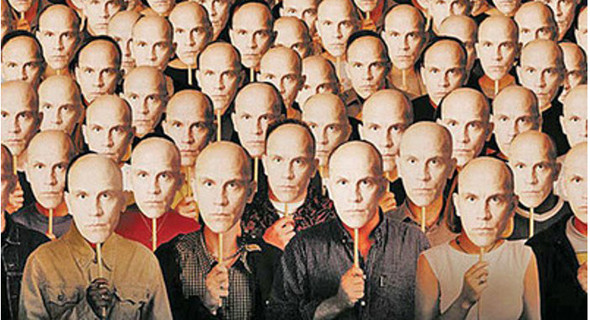In a Guardian “Science Weekly” podcast, Israeli historian Yuval Noah Harari, author Sapiens, tells host Ian Sample how homo sapiens was just one type of human prior to 12,000 years ago, only a mid-range member of the food chain, which used a collaborative spirit and abstract reasoning to conquer other humans and animals. He also explains why he thinks we’ll again in the future have many different types of humans. Two excerpts from the conversation follow.
Question:
How did we make that leap [to the top of the food chain] and what were the problems it caused?
Yuval Noah Harari:
Well, we made that leap thanks above all to large-scale cooperation. We often look for the advantage of Homo sapiens on the individual level because I want to think that personally I’m special, I’m so much superior to chimpanzees or baboons or elephants or whatever. But the fact is that on the individual level, we are not very remarkable animals. If you put me and a chimpanzee alone on an island, and we had to struggle for survival, I would definitely place my bets on the chimpanzee, not on myself. We are powerful only when we cooperate in large groups, and this is our big advantage. If you put a thousand chimpanzees and a thousand sapiens on an island, the sapiens will easily win, for the simple reason that a thousand chimpanzees can’t cooperate. Large-scale cooperation is the secret of Homo sapiens’ success, and this has made it not only the top dog in the food chain but also an ecological serial killer. We have been changing the ecology of the planet and causing the extinction of many, many species of other animals and plants long before the Industrial Revolution. The first time it happened was 45,000 years ago when the first sapiens reached Australia and colonized Australia, and within a few thousand years, 95% of all the big animals in Australia became extinct. And the same thing happened again and again in America and Madagascar and many other places.
Question:
I was keen to hear how you think the Scientific Revolution has influenced our path.
Yuval Noah Harari:
The Scientific Revolution is one of the three big revolutions of history, and it might turn out in the end to be the biggest revolution of all–not only of history but also of biology. Because at present in the early twenty-first century, science is starting to give people amazing abilities to reshape life itself and to move from the old principle of life, which was natural selection, to the new principle of intelligent design. After four billion years in which life on Earth evolved according to natural selection, we might just now be starting a new phase, which will be based on intelligent design, with the help of technologies like genetic engineering, like nanotechnology, like direct computer-brain interfaces, that can be used for the production or engineering of cyborgs. …
Just as 70,000 years ago, when we had something like six biologically different species on the planet, in the 21st or 22nd century, we might again have biologically different humans, each with very different capabilities and qualities, and maybe even desires.•
Tags: Ian Sample, Yuval Noah Harari

